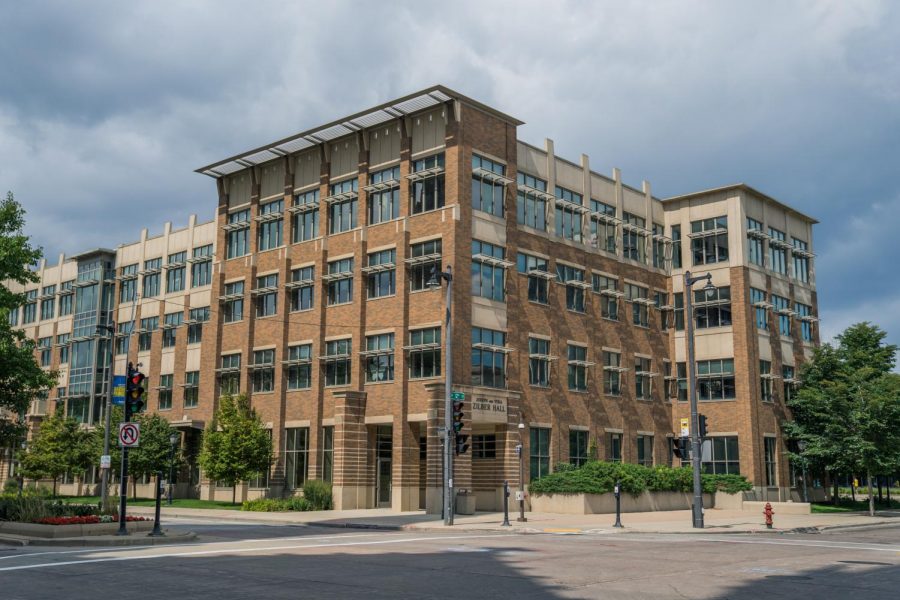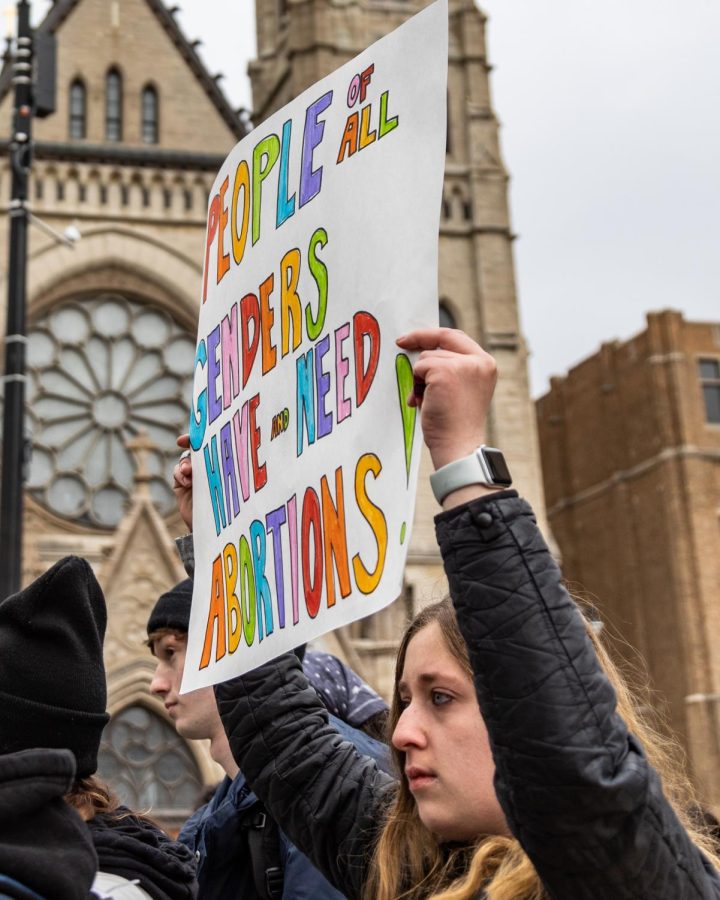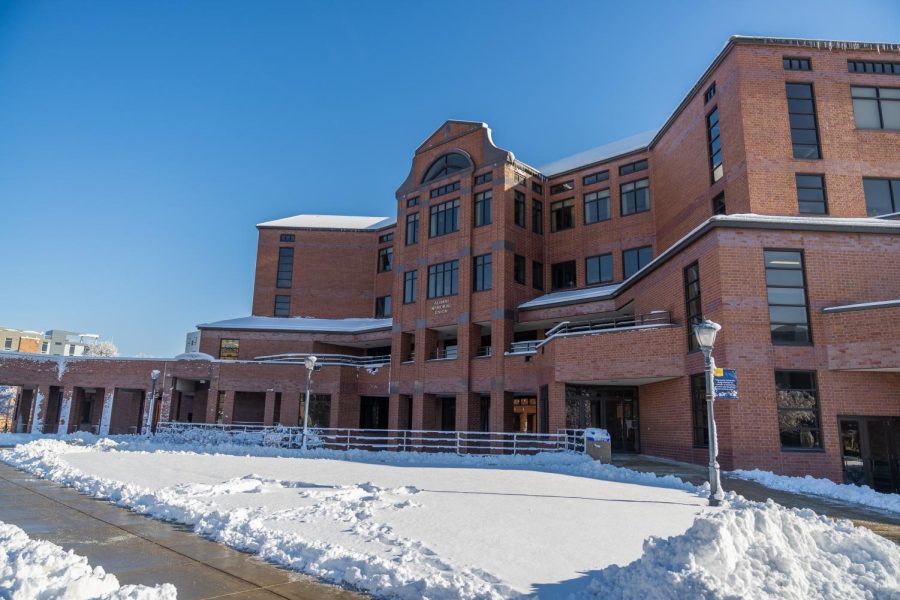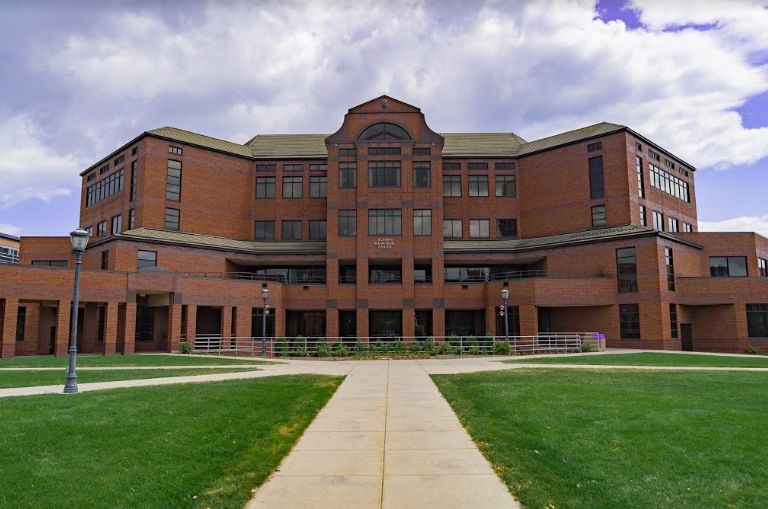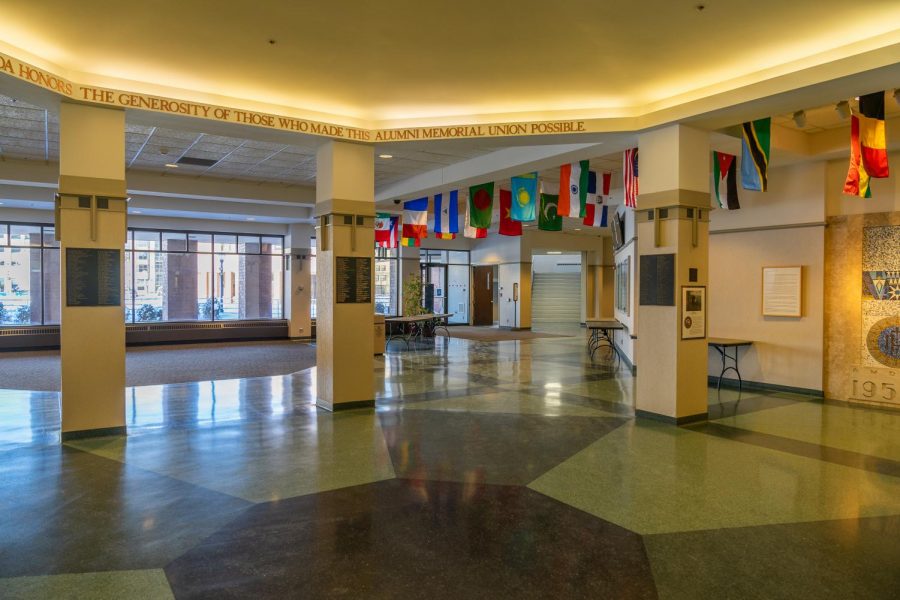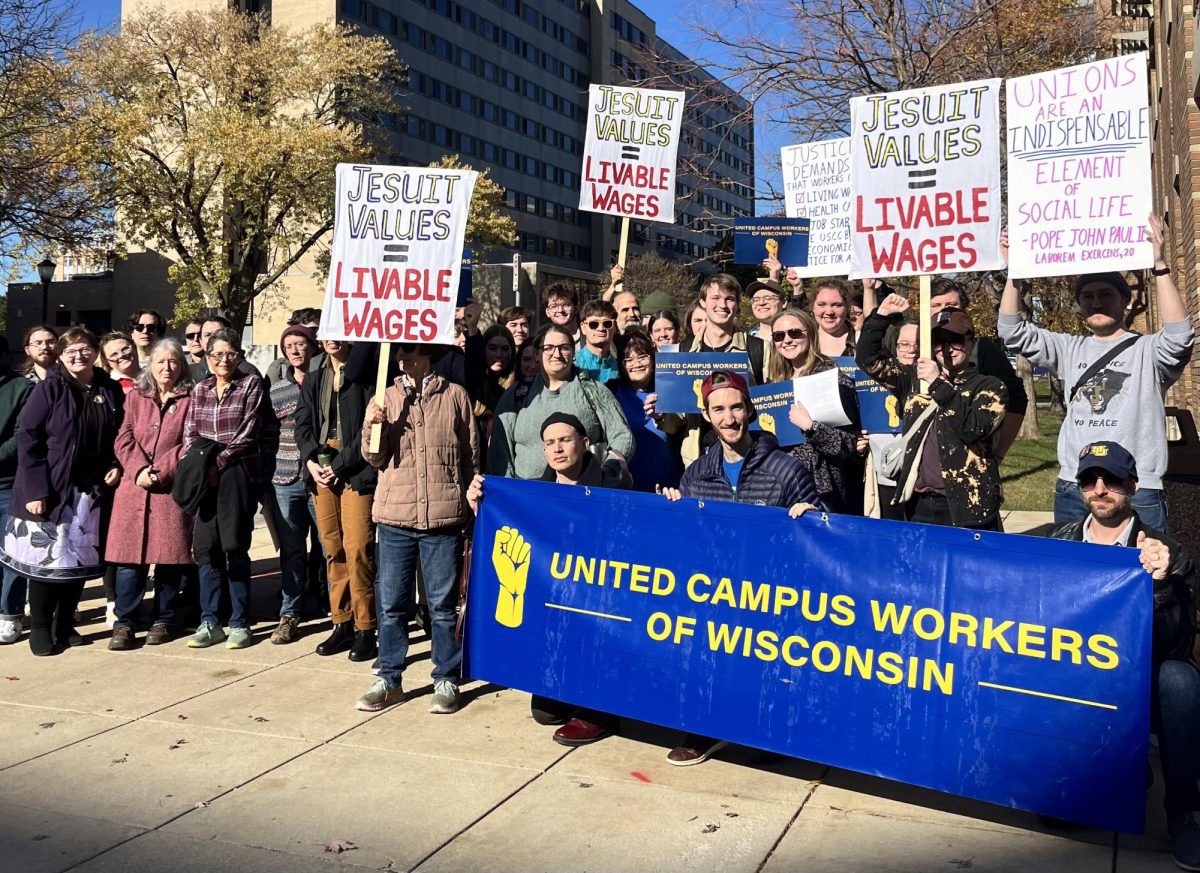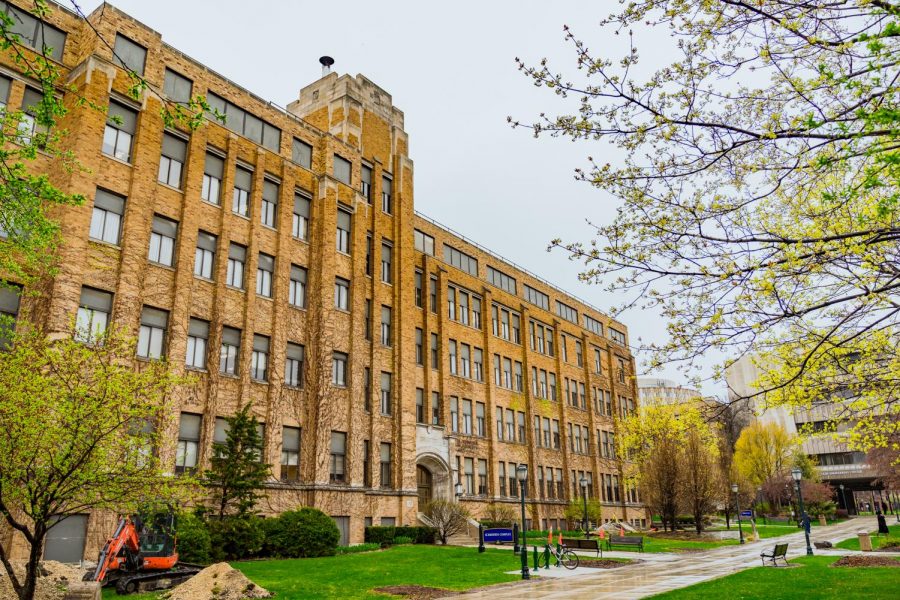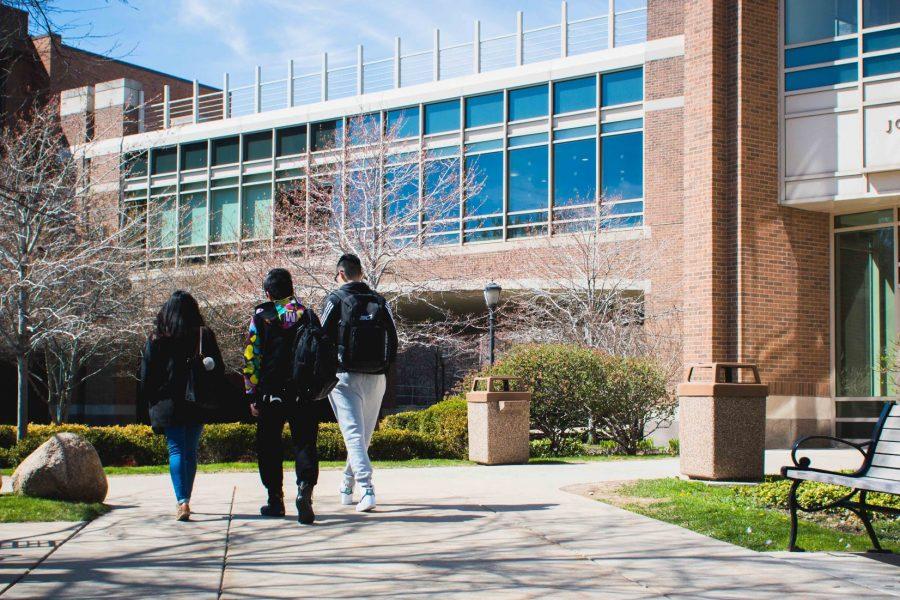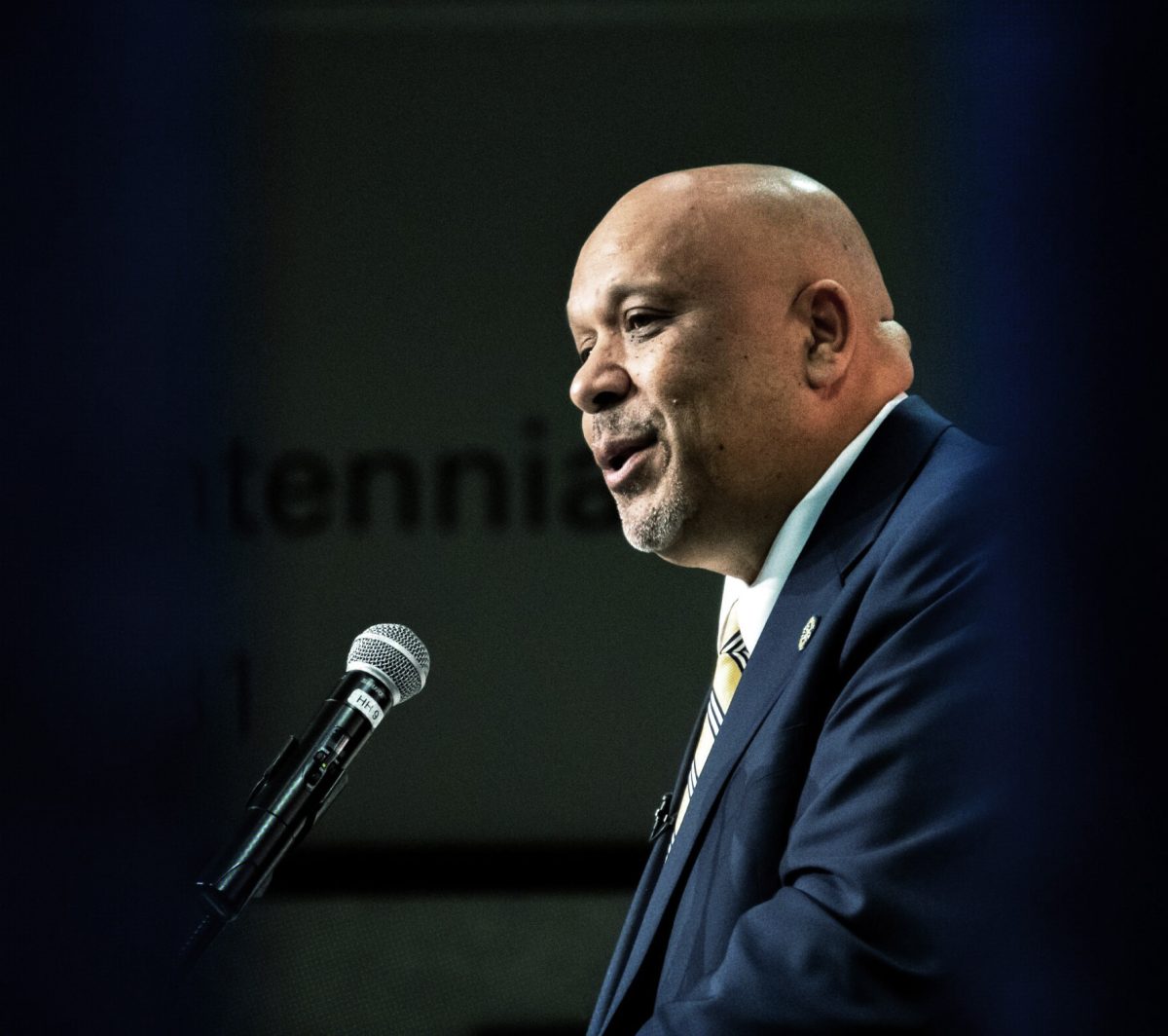The university announced Thursday it will revise its demonstration policy in consultation with leaders from the campus community.
Marquette administrators will make changes to the policy, and then they plan to meet with members of University Academic Senate, University Staff Senate and Marquette University Student Government leaders to gather input, according to a university news release. The University Academic Senate will also discuss the policy at the Sept. 16 meeting at 3 p.m. in Alumni Memorial Union Ballrooms C and D.
“In the interest of ongoing dialogue and continuous improvement, I and other university leaders will meet with key campus stakeholders to further examine the policy,” acting provost Kimo Ah Yun said in the release. “As an institution, we want to appropriately balance the need for practical policies with our commitment to shared governance and the free exchange of ideas, which are foundational to our Catholic, Jesuit mission and Guiding Values.”
The policy, which the university originally instituted in late August, provided guidelines for approval of student, staff and faculty demonstrations on campus.
Faculty members recently spoke out about the university’s limited drafting and approval process in an open letter against the policy. Ah Yun told the Marquette Wire that representatives from the Office of the Provost, the Office of Finance, the Office of General Counsel and the Department of Human Resources first reviewed and approved the policy.
He added that himself, along with senior vice president and chief operating officer Joel Pogodzinski, give final approval for all policies.
Grant Silva, an associate professor of philosophy, described the process as a “top-down approach.”
“Faculty were alienated from it,” he said of the original process. “Marquette, ideally, is supposed to have power distributed throughout the university to varying degrees.”
The university released four policy documents with varied and unclear wording, which led to various interpretations of its meaning.
While the university initially contended that its policy did not require permission to protest in the AMU, five attorneys who spoke with the Wire said the policy’s requirements equated to students, staff and faculty needing permission.
“After hearing from members of our community, we realize that the policy should be clearer so that its intended spirit and practical application are understood,” Ah Yun said in the release.
The updated demonstration policy will eventually be shared via the Marquette Today newsletter, which is sent to students, faculty and staff Mondays and Thursdays, according to the news release.

